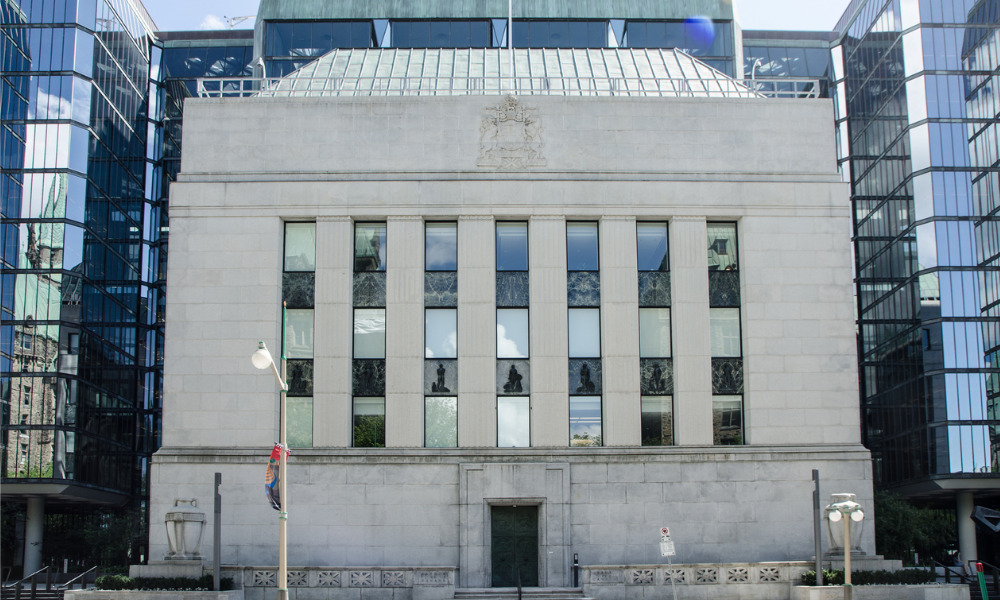Market observers outline the possibilities for the central bank's next rate meeting

The latest inflation data likely provides the Bank of Canada with sufficient cause to implement another 25-basis-point rate increase later this month, although a rate hold still remains possible, according to various observers.
James Laird, co-CEO of Ratehub.ca, said that the just-released inflation results are good news for existing variable-rate holders and for those who are considering fixed-rate mortgages in the near future.
“Variable-rate and home equity line of credit (HELOC) holders should budget for a 25 basis-point increase,” Laird said. “At the same time, they should be pleased that inflation is moving in the right direction, which should limit further increases in 2023. Anyone who requires a fixed-rate mortgage in the next couple of months should shop around frequently to ensure they are getting the best rates.”
Statistics Canada reported that the country’s inflation levels ticked down to 6.3% (annualized) in December, mostly due to lower gas prices.
However, the lack of appreciable improvement in core inflation means that the BoC is likely to stay its course in its rate-hike trajectory established last year, although at a more measured pace.
“While the direction of inflation is at least mildly encouraging, there’s nothing in this report to keep the Bank of Canada from hiking rates another 25bp at next week’s policy meeting,” said Benjamin Reitzes, managing director of Canadian rates and macro strategist at BMO.
A stronger labour market in December, which saw the national economy add 104,000 new jobs, will compel the central bank to step on the brakes a little harder, added Karyne Charbonneau, executive director of economics at CIBC.
“Inflation came in largely as expected, so don’t think it’s going to change [the BoC’s] mind,” Charbonneau said.



